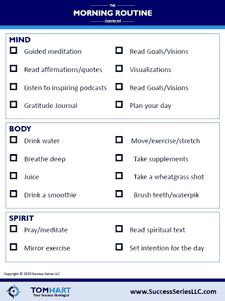#GrowYourLife
Why New Year’s Resolutions Are Hard To Keep
It dawned on me while reading a recent magazine article why New Year’s resolutions are so hard to keep: it comes down to the way our brains work. A better understanding of your thinking could help you follow through on your goals for 2017. Here’s what I learned:
The Thought Alone Satisfies Our Instant Gratification
Tim Pychyl, a psychologist at Carleton University in Ottawa, states “Making New Year’s resolutions requires no action. The simple thought—the idea that we intend to lose weight or exercise more—satisfies our instant gratification. In the moment, just thinking about losing weight makes us feel good, and we don’t actually have to go out and do the tasks necessary to achieve that goal.” This is similar to recent thinking as presented in this TED Talk from Derek Sivers that telling the world your goals gratifies your brain to a point akin to ACTUALLY ACHIEVING IT! Check it out. It’s a new paradigm. I say, tell a select few to keep you accountable.
Procrastination
Another reason, states Pychyl, is labeled affective forecasting, a term meaning how we feel in the moment is an indicator to how we will feel in the future. And it makes sense: When you make a New Year’s resolution, you feel good about it at that moment, so you predict that you are going to feel good about it in the future. So oftentimes people will just put it off. “Humans are predictable,” says Pychyl (whose work on procrastination can be found at procrastination.ca), “Procrastination is the number one reason resolutions fail. They just don’t want to get started”.
Automatic Habits
Even as we try to overcome our resistance to our resolutions, something a little more powerful takes over in our brains: The force of habit. In simple terms, habits are connections of neurons that work together that have been beneficial to us over time. The more we execute the habitual behavior, the stronger those neuronal connections in our brains become. Through the course of human evolution, habits have been a really good thing; they are automatic thoughts or actions that have, for example, saved us from predators. The brain’s entire limbic system is devoted to this automatic thinking, while the prefrontal cortex—the decision-making center of our brain—does its best to determine when it can and should override our basic instincts. Habits take a long time to break, so I advise people to take each goal one step at a time. Just determine what the next action is and take that. Momentum will build. New habits will soon become routine. Small successes will strengthen the muscle.
Mindfulness Is One Answer
By understanding what’s going on in our brain, we have a better chance of controlling it. The key, Pychyl says, is to loosen the connection between the neurons that form these habits. One way of doing this is through mindfulness. A mindfulness practice will teach you to view the world and emotions in an unbiased way. We often associate certain behaviors or actions—like going for a run or flossing—with negative thoughts. Over time, this connection strengthens and the association between negativity and flossing becomes an automatic thought. As a result, not flossing becomes a routine habit. But if you give flossing an unbiased second chance, you’ll realize you could just as easily associate with good or neutral thoughts. Science backs this idea up: some studies show that even eight weeks of mindfulness meditation can decrease the size of the brain’s amygdala and degrade the connections between the amygdala and the prefrontal cortex. “So there are physiological changes in the brain that happen when we develop some ability to bring non-judgmental awareness to the world,” says Pychyl.
In summary
In summary, don’t let procrastination, bad habits, negative thinking and failure deter you from fulfilling your goals. As you begin to work on your goal, just focus on the next action.
Be watching for two related things in upcoming blog posts: I will soon be posting a 7-part guided mindfulness meditation audio series and a post entitled “Try Forming A Habit Instead Of Making A Resolution”.
One of my missions in life is to move and inspire people to take action in their own personal development and business building. It is my honor and privilege to serve you in this way. I make it an absolute MUST to inspire each and every one of you to STEP UP and live the life of your dreams, NOW, and not settle for less than you can be, do, have, say or believe.
There is no better endorsement than that of a friend, so if you like what you’re reading or are using my many resources, tell a friend to join the Tom Hart Success Series Community, to receive email notifications of new blog posts and Talk with Tom podcast episodes, learn of upcoming events, and other news, by visiting my website and clicking on the offer to receive the Introduction and first two chapters of my eBook Getting From Here To There for FREE by leaving their email address (we respect your privacy and do not tolerate spam and will never sell, rent, lease or give away your information to any third party).



